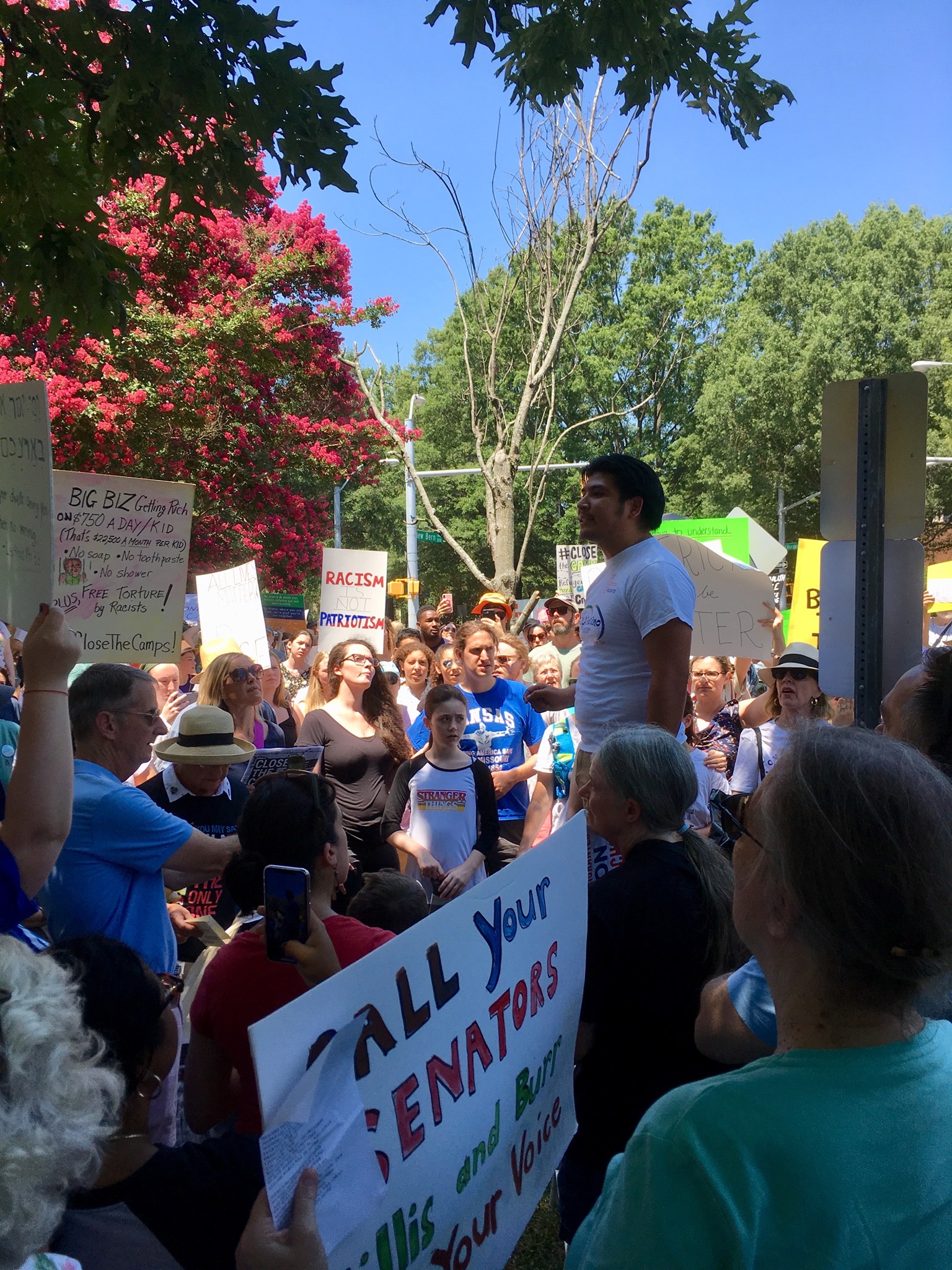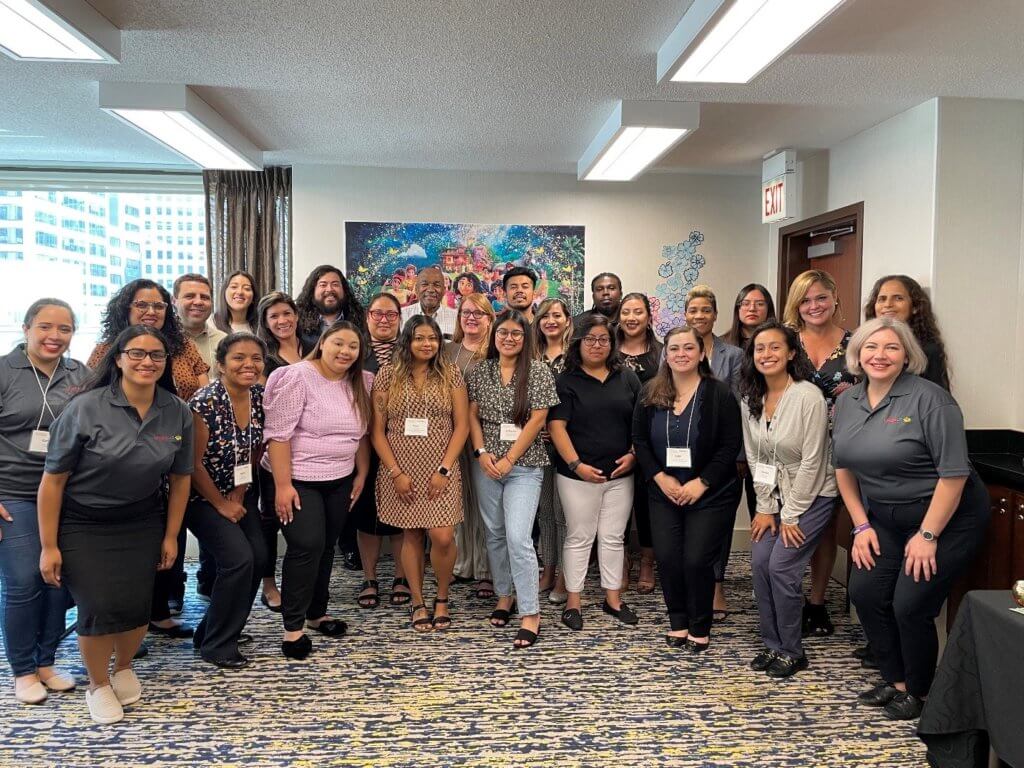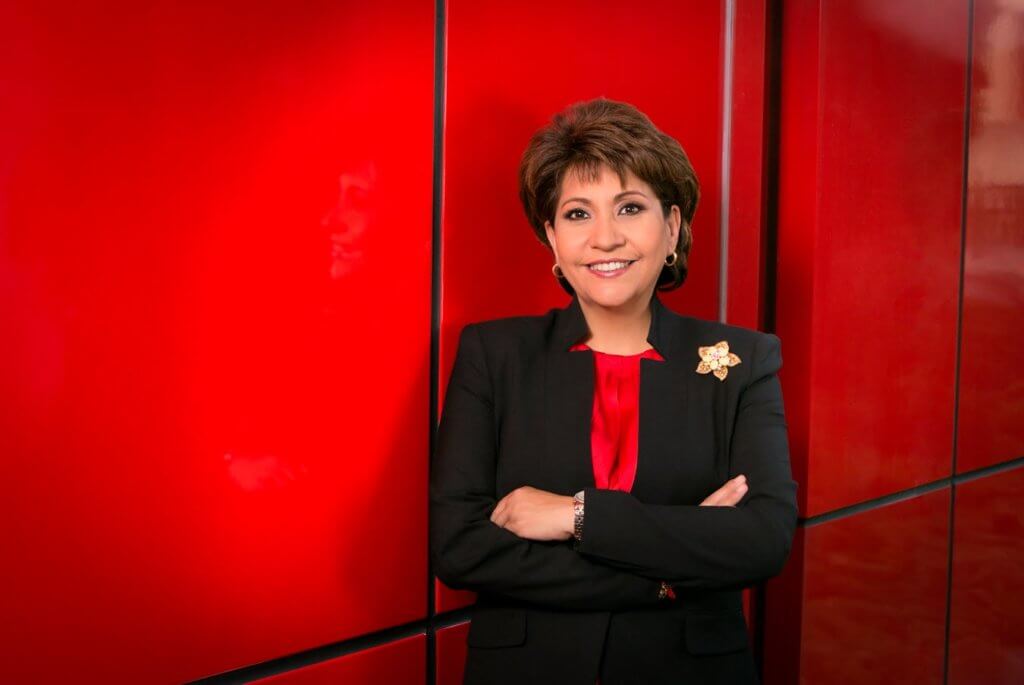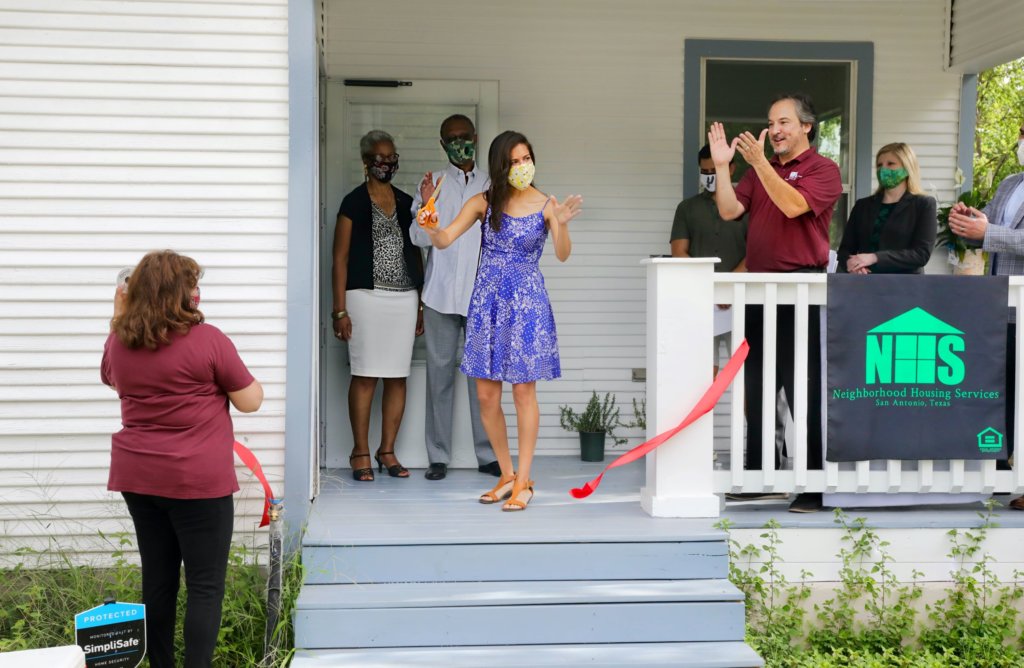Eliazar Posada: An example to follow in resiliency by a young, committed leader
“If there’s something we can do, then let’s do something.” That straightforward sentence perfectly describes Eliazar Posada’s calling. The Director of Community Engagement and Advocacy at UnidosUS 2018 Southeast Affiliate of the Year El Centro Hispano, Inc. has been advocating for himself, his family, and his community for the majority of his life. And while he’s young in age, he more than makes up for it in experience. “When I see something that is supported solely based in ignorance, I fight it tooth and nail,” he says—a perspective he’s had his entire life.
By Beatriz Paniego-Béjar, Content Specialist, UnidosUS
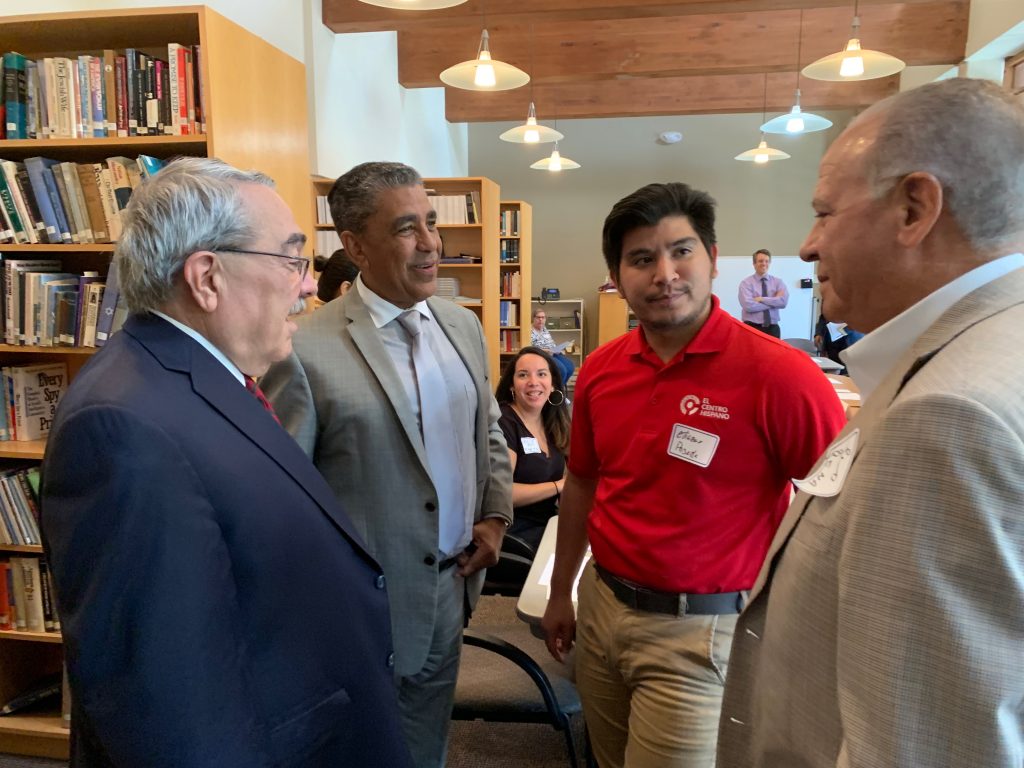
When Eliazar was in high school, he and his friends started an after-school program for Latinos after realizing there were no programs like that for our community. Their requirement to be part of the club: “No one could get on a fight,” Eliazar explains plainly. They themselves didn’t even believe it would work, but nevertheless, 80% of the Latino students in their high school joined the club and followed the rules.
Keep up with the latest from UnidosUS
Sign up for the weekly UnidosUS Action Network newsletter delivered every Thursday.
When he went to college, same thing: “I saw things I didn’t like, and I started gathering my friends. And I really didn’t think of it as canvassing or advocating: I just thought that there was something that we could do, so let’s do something.” He went to Campbell University, a historically religious college founded by a Baptist minister: “I started the first LGBTQ Student Union on campus, which took a fight all the way up to the Board of Trustees. It took two years, but I got the Student Government Association and the Campus Activities Board behind me and we got it done,” Eliazar says proudly.
When he joined El Centro Hispano, he first arrived as a volunteer and participant at Hola Latino, a support group for Gay and Bisexual young men. He went on to become their coordinator of that support group, then youth coordinator, and after that they created the department that he now leads: the department of Community Engagement and Advocacy.
Just this year, in this role, he was able to stop North Carolina’s House Bill 370 from becoming law, which would’ve required sheriffs’ offices throughout the state to cooperate with Immigration and Customs Enforcement (ICE) and assist the federal government in deportation procedures.
“We mobilized the community from the moment it reached the legislation, to when it arrived at the governor’s desk, to when legislators tried to bring it back for a veto override,” Eliazar says.
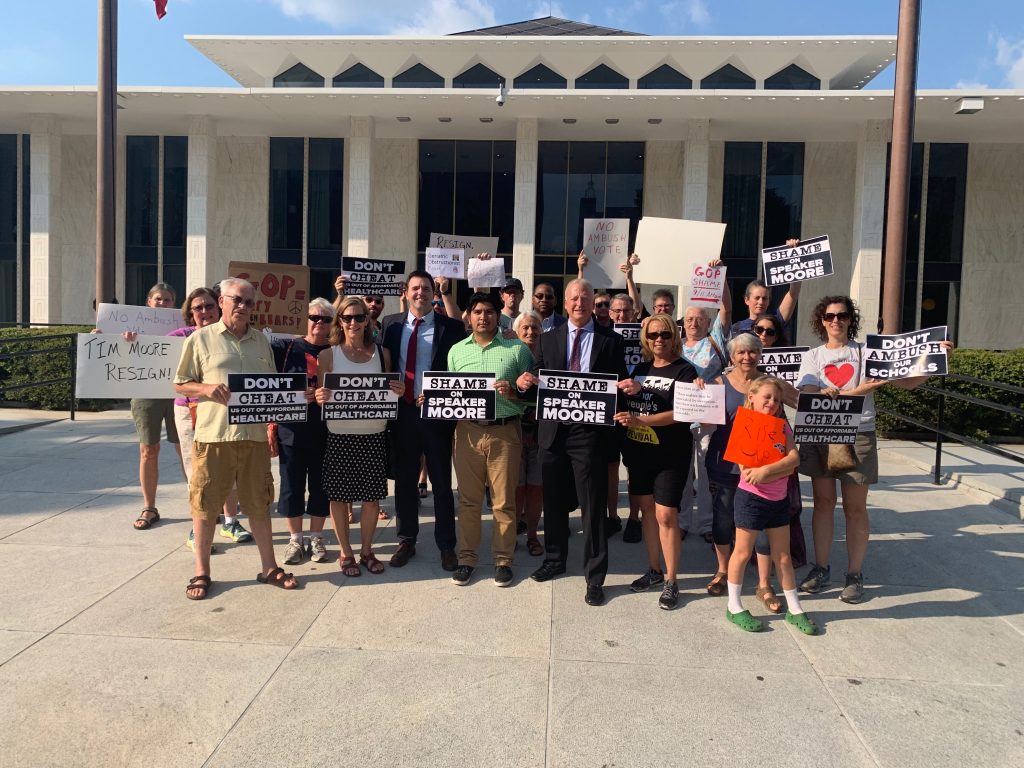
The start of Eliazar’s advocacy
These are just a few examples showing Eliazar’s passion come to life; but to understand his journey, we have to go back to his childhood. “I was born in Florida,” he starts after a pause. He’s getting ready to walk us through his life, one that may seem short in time—Eliazar just turned 27 last October—but it actually is rich and profound in experiences.
Eliazar has clearly recognized the path that has led him to do the work he does. His parents organized a group of farmworkers to travel from state to state following the crops. That was his family’s reality for years; however, when he was five his father decided to stay behind in Florida to start a new family. His now single mother took him and his brother to south Texas, where she started working at their school district superintendent’s office in parent engagement and advocacy. “Everyone knew Mrs. Posada,” Eliazar tells, joking how difficult it was then to get in trouble.
At that time, they lived in a mobile home, and one day they came back to find they didn’t have a home anymore: “All our stuff was in the lawn,” Eliazar recalls, “and the mobile home was gone.” It was his father’s, and he had sold it. It was at that moment when his work ethic started to develop. Eliazar was only seven, and he and his brother had to start waking up at four in the morning to help their mom cook food that she would then sell. After school, they would also go with her to her third job at a restaurant, where they helped her sweep and mop to close the restaurant.
“But even when we were going through this, my mom always put my brother and I first, as well as all the other students, in fact, she was always a parent advocate,” Eliazar explains. “And because of these experiences, my brother and I put education before anything, and hard work being at the very core of everything we do.”
Stand up for yourself
Through her role as a parent advocate, Eliazar’s mom showed their children respect: respect to their teachers, to their principals, to the school, to her, but above all, self-respect. He recalls a few instances in which his mom showed up for him at school: for some, he got into trouble, for example when he talked back to a teacher; for others, it was the school that got into trouble, like when another kid called him a “wetback,” but the school punished Eliazar instead.
Through all these experiences, and all those times when parents came to their house seeking help to advocate for them in school, Eliazar saw in his mom the community leader she was. He credits her for helping him develop a “stand-up-for-yourself” mentality, driving him to fight for and create change in his community.
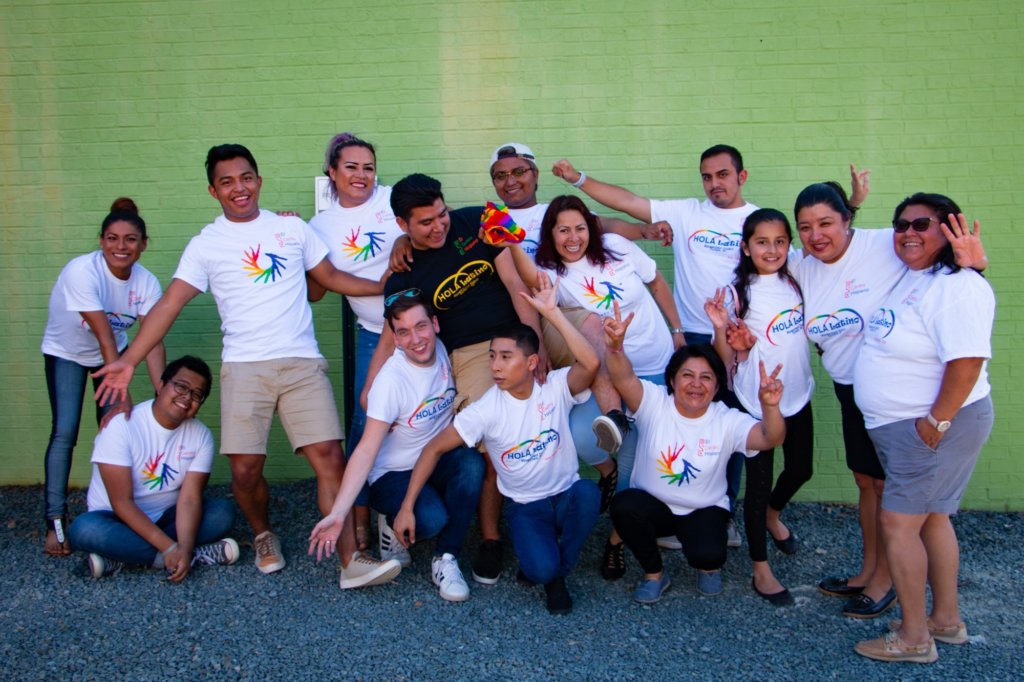
Unfortunately, one of those occasions in which he stood up for himself, his mom did not support him: it was when Eliazar came out to her. She didn’t accept it, and the 47-minute lecture he received—as he describes it—started with an “I thought I had a son,” and it finished with: “I hope I can be proud of you one day,” Eliazar shares, clearly shaken.
He was 19 years old, and this reaction from his mother made him realize even more how much he needed that youth group at El Centro Hispano. It was this youth group that got him really involved in this organization, first as a participant and now as an invaluable staff member.
A true leader
Eliazar Posada has grown and developed with UnidosUS Affiliate El Centro Hispano, and his ability and leadership skills show in everything he does. A testament to those skills is his desire to empower those working with him “so when I move on, there is someone that can take on that leadership role,” he says.
And in his latest position as the director of programs at El Centro, he explains that his focus is creating programs that are sustainable and will continue to exist after he’s left the organization. On the policy side, he has worked to build relationships with elected officials, representatives’ staffers, and the media to promote the organization’s goals. He admits that the fight energizes him: “I just like fighting against people who think that they know better or they want to be racist […] When I see something solely based on ignorance, I fight it tooth and nail.”
As a good leader, Eliazar also recognizes his challenges: he knows his youth is a big one, as well as the fact that he was born in the United States.
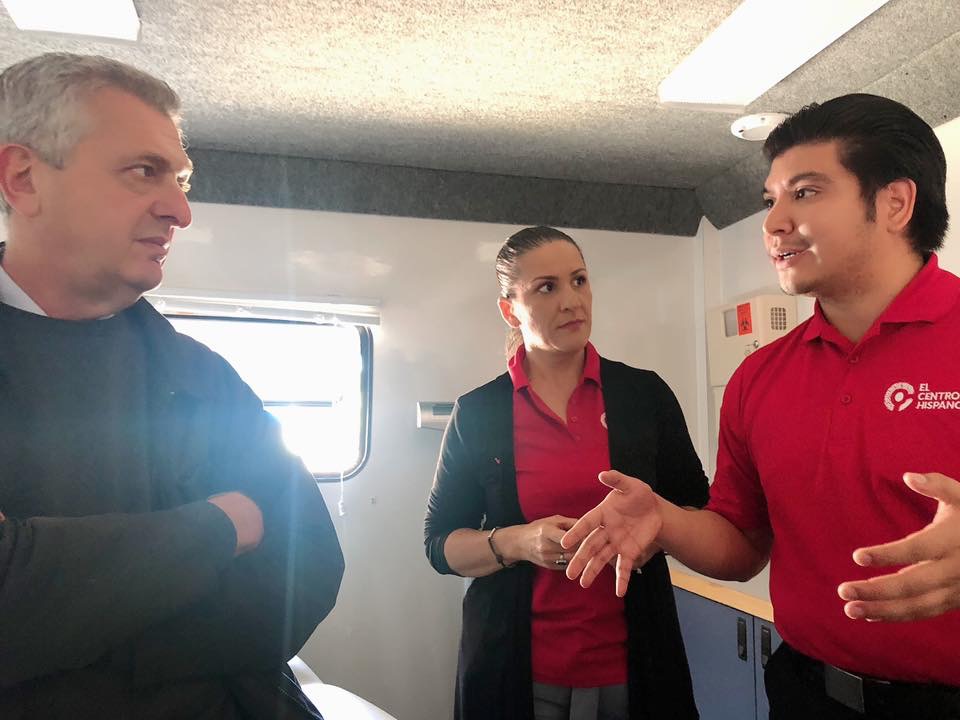
“I have to prove myself to partners and staff. In the community, sometimes it leaves me at a disadvantage because they feel I don’t understand directly what the immigrant community goes through. And they’re right: I never had to cross the border, never had to walk miles to ensure the security of my kids—I don’t have kids—but that doesn’t mean I cannot fight for folks. And it doesn’t mean that I can’t sympathize with them with all the things I’ve gone through, like not having a home. I hate to exploit that but having to work before going to school and then work after going to school when you’re in elementary school definitely shapes you.”
“Fighting for my people”
His demeanor is relaxed, open, truthful, and also fun. Eliazar is an old soul with a burning fire inside to do the right thing: “My purpose is doing what I can to help people. I love what I’m doing, and I love the fact that I’m doing something that makes people’s lives better. For now, my purpose is doing what I can for my people.”
It is easy to talk to this young man, and it is also mesmerizing to hear someone speak with such clarity about his life and how he has ended up where he is: “I’m only an expert in my own experience, and all of us are experts on that and no one can tell us who we are, and who we aren’t, and who we should be, and that has been one of the guiding principles in my life.”
Any final words for our readers? “Don’t let people tell you who you are or who you can be, and if you see something you don’t like, do something about it. Talking about things is important. Taking action is even more important,” Eliazar concludes.

